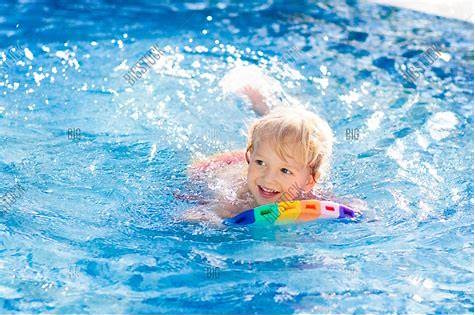Swimming is more than just a recreational activity or sport for children – it’s a powerful developmental tool that shapes crucial life skills. Research from the Griffith Institute for Educational Research shows that children who learn to swim at an early age reach cognitive, physical, and language milestones faster than their non-swimming peers.
Physical Development
Swimming engages all major muscle groups, improving coordination, balance, and overall strength. According to pediatric studies, regular swimming can enhance gross motor skills by up to 20% compared to non-swimming activities. A 2019 study published in the International Journal of Aquatic Research and Education found that children who swim regularly demonstrate better posture and physical awareness.
Example: Six-year-old Sarah struggled with balance and coordination in daily activities. After six months of regular swimming lessons, her teachers noted significant improvements in her playground activities and classroom motor skills.
Mental Resilience
Swimming challenges children to push their boundaries in a safe environment. The process of learning new strokes, diving, and water safety builds mental toughness and perseverance.
Example: When 8-year-old Marcus first started, he couldn’t put his face in the water. Through gradual exposure and supportive coaching, he overcame his fear and now confidently performs all basic strokes. This achievement boosted his self-esteem and approach to other challenges.
Social Skills
Group swimming lessons create natural opportunities for social interaction and teamwork. Children learn to:
– Support peers during challenging exercises
– Practice patience while waiting their turn
– Communicate effectively with instructors and teammates
– Follow structured routines and pool safety rules
Academic Benefits
The Australian Swimming Coaches and Teachers Association reports that children who learn to swim before age five are often months or years ahead in cognitive skills, particularly in:
– Mathematical problem-solving
– Language development
– Following sequential instructions
– Visual-motor skills
Safety First
Perhaps most importantly, swimming lessons save lives. The CDC reports that formal swimming lessons reduce the risk of drowning by 88% among children aged 1-4 years.
Practical Tips for Parents:
- Start early – children can begin water familiarization as young as 6 months
- Maintain consistency – regular weekly lessons show better progress than intensive holiday programs
- Reinforce lessons through water play and practice
- Celebrate small victories to build confidence
- Focus on enjoyment rather than just skill acquisition
By investing in swimming lessons, parents provide their children with a foundation for physical health, mental resilience, and social confidence that extends far beyond the pool.
